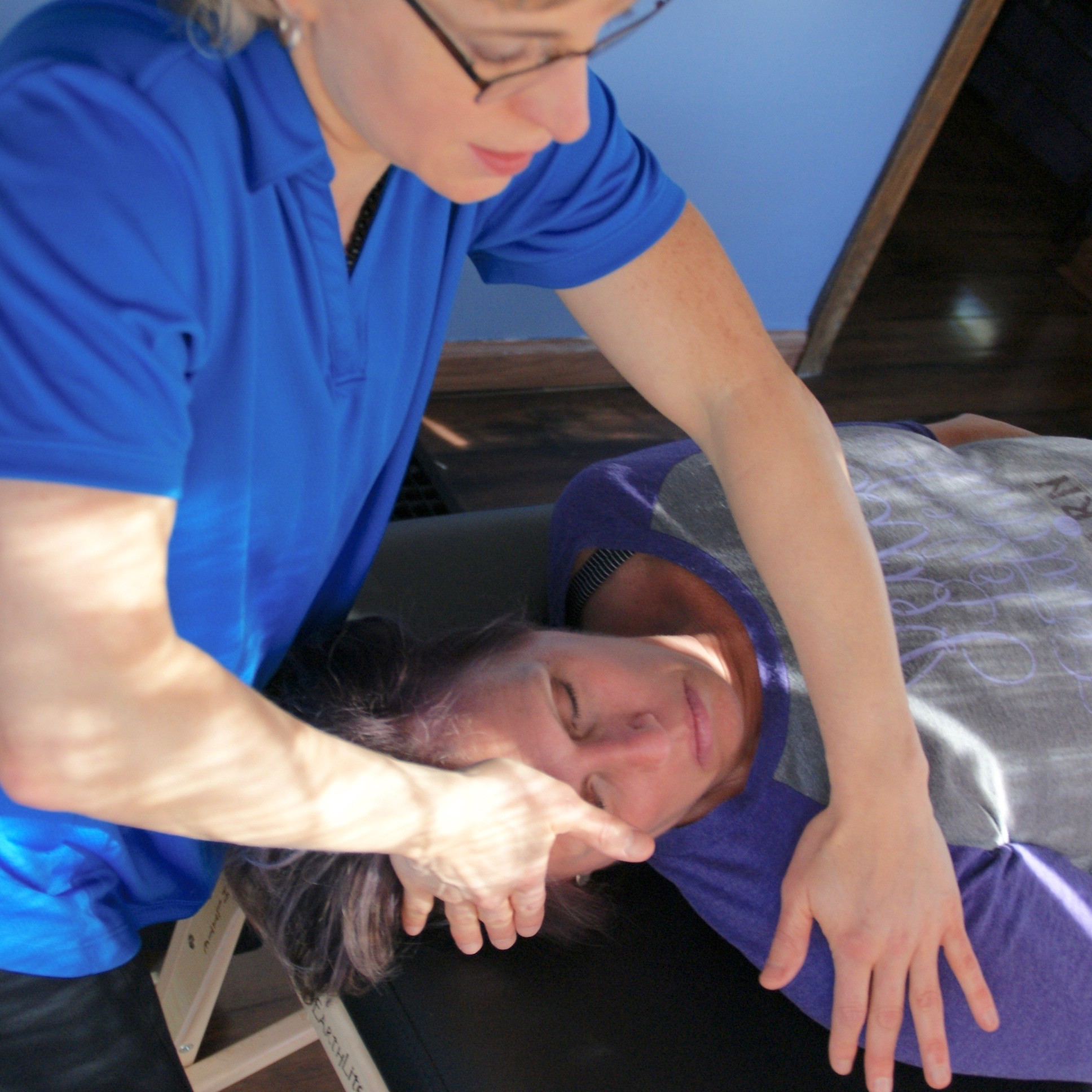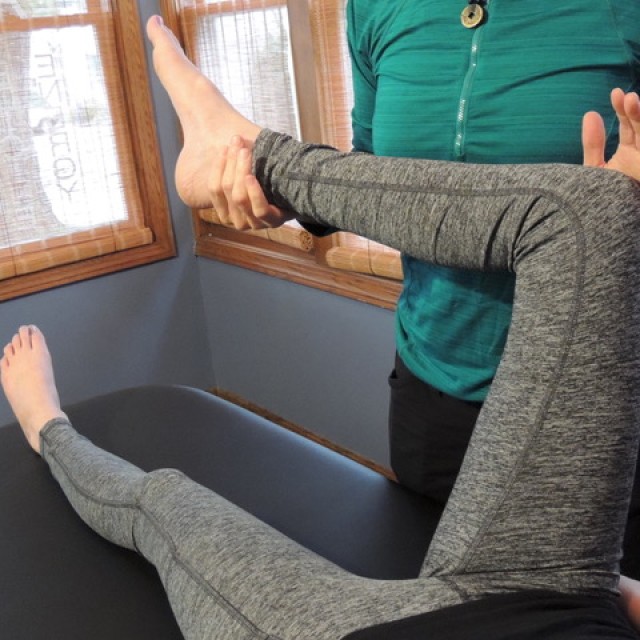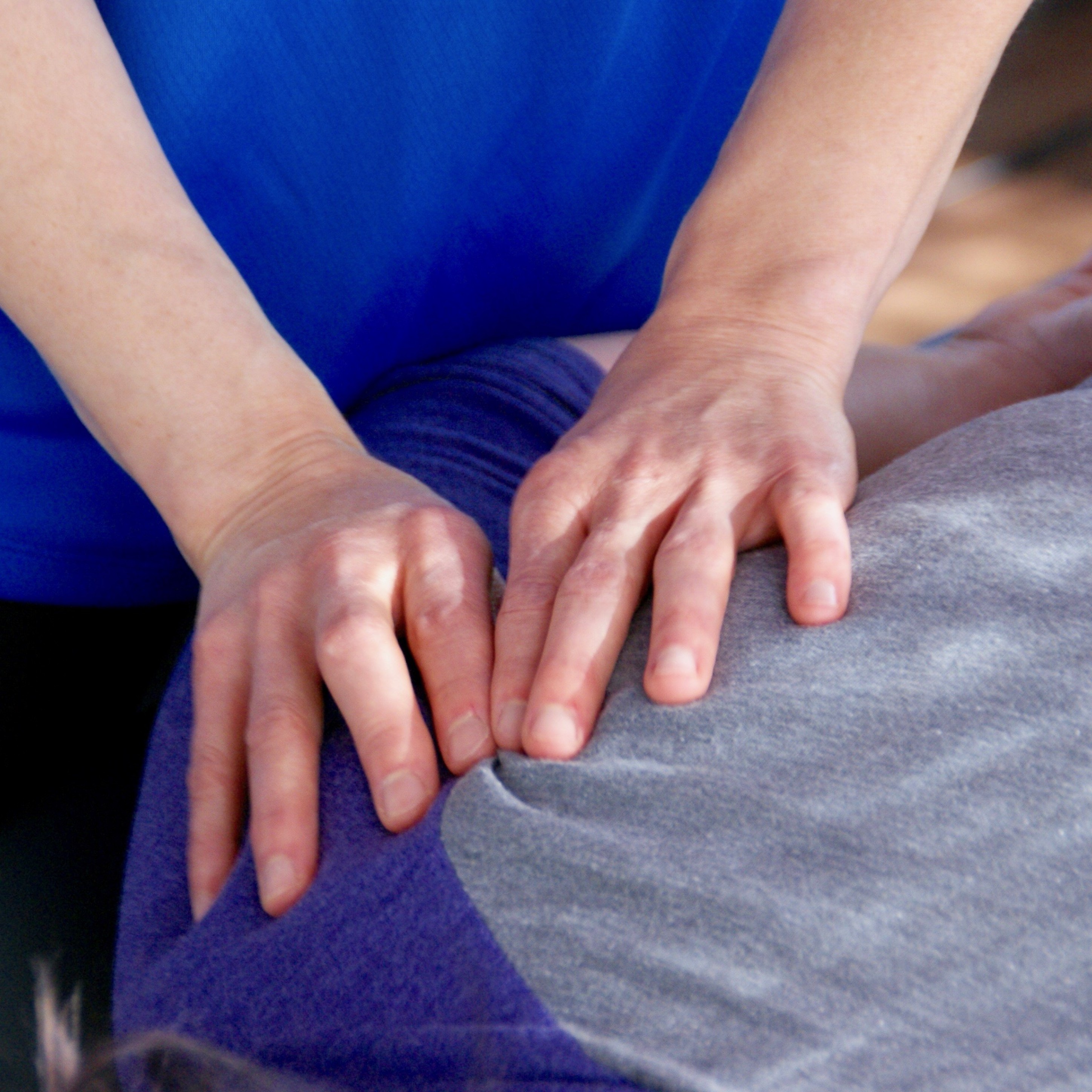
Neurokinetic Therapy (NKT)
Manual Therapy



Pain and restriction in the body can be a result of altered motor control and compensation.
The brain thinks in patterns and movements, not specific muscles in isolation. For example, if you want to pick up your coffee mug, your brain moves your arm out to the cup. Your brain chooses the movement to get your hand to the cup and then move it to your mouth and the movement used is task dependent. Your brain doesn’t think “Ok, fire pronators to turn palm over, fire flexors to grasp handle, and then fire biceps to bring coffee to mouth.” Sometimes, our movement patterns become dysfunctional. They can be dysfunctional for years until they become so dysfunctional that there’s now pain.
Past injuries often start us down the road to dysfunction. For example, if you have an injury that requires a walking boot, you have to change the way your hip works, swinging foot out to the side, in order to swing the boot through on the swing phase of your gait cycle. Even after the foot injury heals, some of the hip compensation can remain.
Another example is any trauma after a car accident or a fall. The normal reaction is to try to stabilize and compensate the injured part and we continue to try to protect the injury long after it’s actually healed. Humans are master compensators.
NKT protocol uses muscle testing to find the specific dysfunctional patterns. We’re not using muscle testing to test for muscle strength. Instead, we are looking at the neurological system. Can your brain fire that muscle at the right time or not? It’s a software issue -- Wifi connection speed, not a hardware issue as in the specifications of the server. Even though we say we’re doing muscle testing, it’s actually “movement testing.” Muscles don’t work in isolation. If you’re doing a bicep curl, it’s not just your bicep contracting and your triceps releasing. There are lots of muscles stabilizing various body parts to allow this movement to happen.
After a dysfunction muscle pair is identified through specific sequencing of the manual muscle tests, the next step is to figure out which of the muscles in the pair is working too hard and which is not working enough. Notice please that it has nothing to do with how strong the muscle is! NKT doesn’t care about that. We’re looking at your brain’s ability to turn that muscle on at the right time.
After the dysfunctional pattern is cleared, the new and improved pattern is practiced. Again, it’s not strength training for the inhibited muscle! It’s gently encouraging the brain to find the neural pathway and use it. It’s giving the brain a chance to practice the new movement.
The most important part of this modality is that the client reinforces the newly established pattern with exercise. In other words, the client must do his or her homework. The brain needs to practice the new motor pattern. If you want to learn anything, then you need to practice. Some clients want to come in to a practitioner’s office, get on the table, have the therapist magically “fix them”, and go home. NKT doesn’t work like that. The person responsible for the “fixing” is the client and the “fixing” happens through the consistent completion of the homework. The brain needs repetition to establish a new pattern. NKT isn’t for everyone because not everyone is willing to take on the responsibility for their own healthcare.